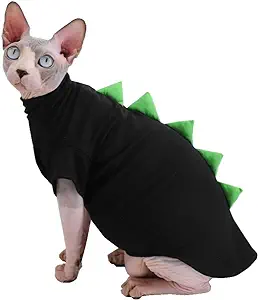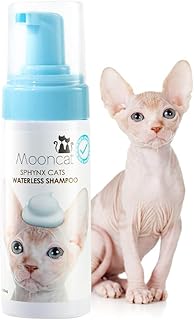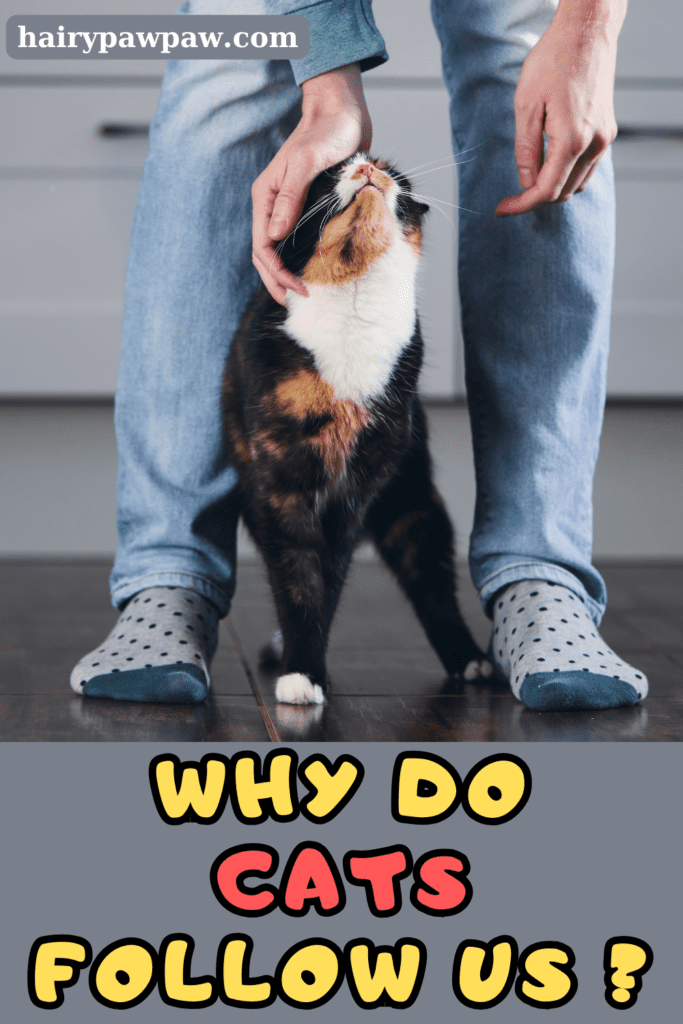Sphynx Cat Characteristics: What Makes This Breed Special
This post may contain affiliate links, which means I’ll receive a commission if you purchase through my link, at NO EXTRA COST TO YOU
The Sphynx cat, instantly recognizable for its unique hairless appearance, stands out among feline breeds. These cats, with their wrinkled skin and strikingly large ears, captivate people not only with their looks but also with their distinct personality traits. If you’re considering bringing a Sphynx cat into your life, you need to understand both their physical and behavioral characteristics. Let’s dive into what makes this breed so special.

Hairless Yet Not Hypoallergenic
One of the most striking features of the Sphynx cat is its hairless appearance. Although they lack fur, they are not entirely devoid of hair. Sphynx cats often have a fine layer of peach fuzz covering their bodies. While this may make them appear hypoallergenic, many people make the mistake of thinking they won’t trigger allergies. Sphynx cats still produce the same allergenic proteins found in feline saliva and skin oils. Because they lack fur, these oils build up on their skin more readily, potentially causing an allergic reaction in sensitive individuals.
Regular bathing becomes essential to manage the oils on their skin. Without fur to absorb these oils, Sphynx cats need frequent baths to keep their skin healthy and prevent oil build-up, which can lead to skin irritation or infection.
Highly Social and Affectionate
Sphynx cats, despite their somewhat alien appearance, are one of the most affectionate and people-oriented cat breeds. They thrive on human interaction and develop strong bonds with their owners. You will often find a Sphynx cat following you around the house, seeking attention, or curling up on your lap.
In addition to being loving companions, they tend to be very social with strangers and other animals. Unlike more aloof breeds, Sphynx cats typically welcome new faces with curiosity rather than wariness. This makes them a great choice for homes with children or other pets, as they easily integrate into a variety of social environments.
Energetic and Playful
Sphynx cats bring endless energy into any home. They are known for their playful nature and love to engage in interactive play. Toys that stimulate their curiosity, such as feather wands, laser pointers, and puzzle toys, keep them entertained for hours. Their high energy levels make daily play sessions crucial for their well-being. Failing to provide enough stimulation may lead to boredom, which could result in mischievous behavior.
These cats love to climb, jump, and explore every corner of their environment. Providing vertical spaces, like cat trees or shelves, helps keep them active and engaged. They enjoy interactive games with their owners and even get along well with dogs and other pets, making them adaptable to various household dynamics.
Intelligent and Inquisitive
Sphynx cats possess high levels of intelligence, which often manifests in their inquisitive behavior. They enjoy learning new tricks and figuring out how to open doors or cabinets. Their problem-solving skills can surprise even the most seasoned cat owner.
Training a Sphynx cat becomes an enjoyable process because they quickly grasp new commands and routines. Using positive reinforcement methods, such as treats and praise, works best with this breed. Many owners find success teaching their Sphynx cats to sit, fetch, or even walk on a leash. Their intelligence keeps them actively engaged in their surroundings, so providing stimulating toys and activities prevents them from getting bored.
Vocal and Expressive
If you prefer a quiet, low-key pet, the Sphynx cat might not be for you. These cats tend to be quite vocal, expressing their needs and emotions through a wide range of sounds. From soft meows to loud chirps, Sphynx cats use their voice to communicate with their owners.
Their vocal nature is part of their affectionate personality. They constantly seek interaction and won’t hesitate to let you know when they need attention or want to play. Expect lots of conversations, as they love to engage with their human companions.
Vulnerable to Temperature Changes
The lack of fur leaves the Sphynx cat more sensitive to temperature changes. While other cats can tolerate colder environments, a Sphynx will quickly seek warmth when the temperature drops. These cats love to curl up in cozy blankets or snuggle next to their owners to stay warm.
You will need to provide extra warmth during the winter months. Heated cat beds or soft sweaters can help keep your Sphynx comfortable. On the other hand, Sphynx cats are also susceptible to sunburn, so it’s important to limit their direct exposure to the sun. Their delicate skin can become irritated if left in the sun for too long, making sunscreen or protective clothing a good idea for outdoor adventures.
Strong Need for Attention
Sphynx cats crave constant interaction and thrive on attention. If left alone for long periods, they can become lonely and even depressed. Their need for companionship makes them ideal for individuals or families that spend a lot of time at home.
If your lifestyle involves frequent travel or long hours away from home, consider adopting a second pet to keep your Sphynx cat company. Another cat or even a dog can help fill the social gap when you’re not around. However, Sphynx cats bond deeply with their human companions and prefer to be with them whenever possible.
Wrinkled Skin and Grooming Needs
In addition to being hairless, Sphynx cats have distinct wrinkled skin, which adds to their unique appearance. These wrinkles tend to collect dirt and oils, so maintaining regular grooming habits becomes vital for their skin health.
You will need to clean between their wrinkles regularly to prevent infections or irritations. Along with bathing, ear cleaning should also be part of their grooming routine. Without fur, their ears accumulate wax more quickly, which can lead to ear infections if not cleaned properly.
Healthy but Prone to Certain Issues
Sphynx cats generally enjoy good health, but they do have some breed-specific health concerns. One common issue involves hypertrophic cardiomyopathy (HCM), a heart condition that affects many cat breeds, including the Sphynx. Regular vet check-ups help detect and manage this condition early.
Additionally, Sphynx cats are prone to skin conditions due to their lack of fur. They can develop acne or fungal infections if their skin isn’t properly cared for. Staying on top of their grooming needs and keeping their skin clean will help prevent these issues from arising.
Lifespan and Longevity
Sphynx cats typically live between 12 to 15 years, but with proper care, many can live longer. Ensuring a balanced diet, regular vet check-ups, and plenty of mental and physical stimulation will help your Sphynx lead a healthy and fulfilling life. Their affectionate nature and strong bond with their owners make those years full of love and companionship.
Conclusion
The Sphynx cat, with its bold appearance and lively personality, makes a memorable and devoted companion. From their hairless skin and playful energy to their constant need for affection, Sphynx cats captivate the hearts of their owners in many ways. However, their unique characteristics come with specific care requirements, making it essential to understand their needs fully. Whether you’re drawn to their wrinkled skin, their loving nature, or their intelligence, owning a Sphynx cat is a rewarding experience that brings joy and excitement into any home.








